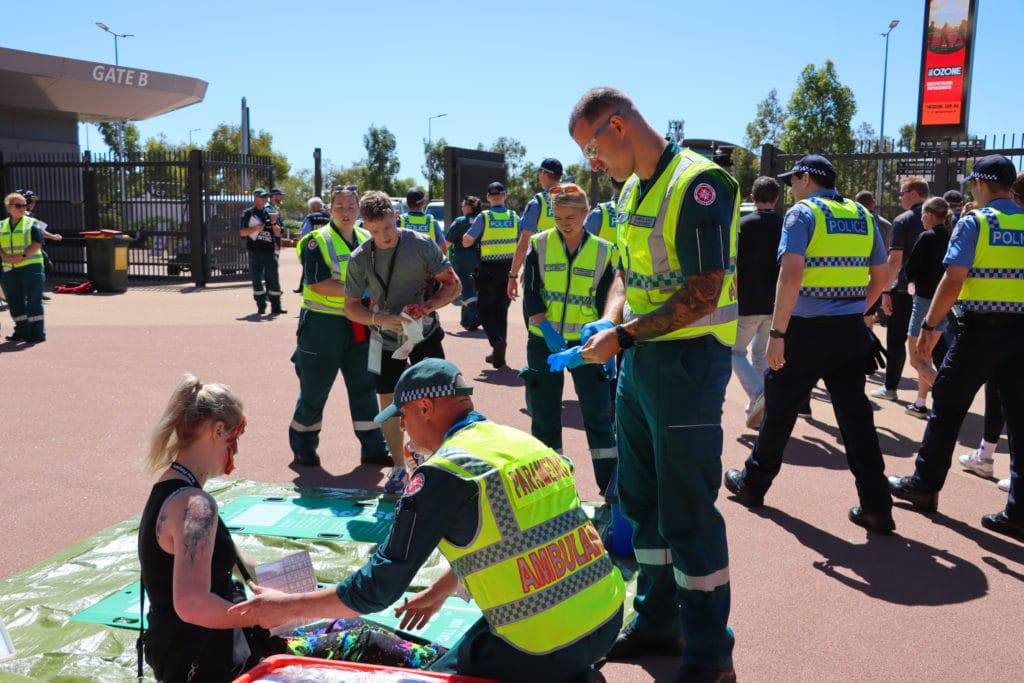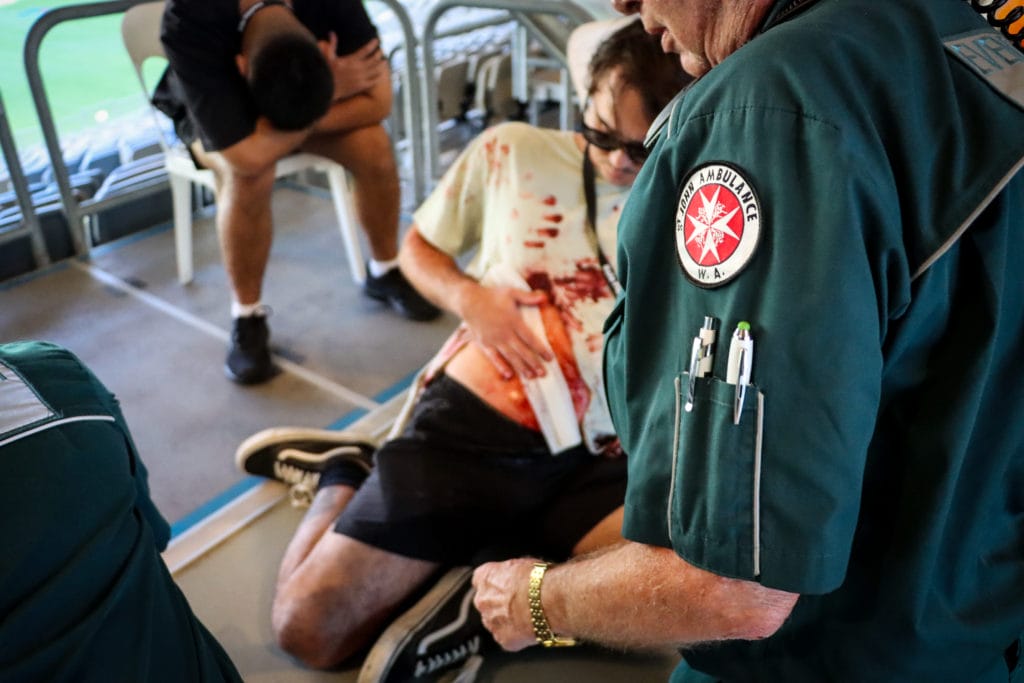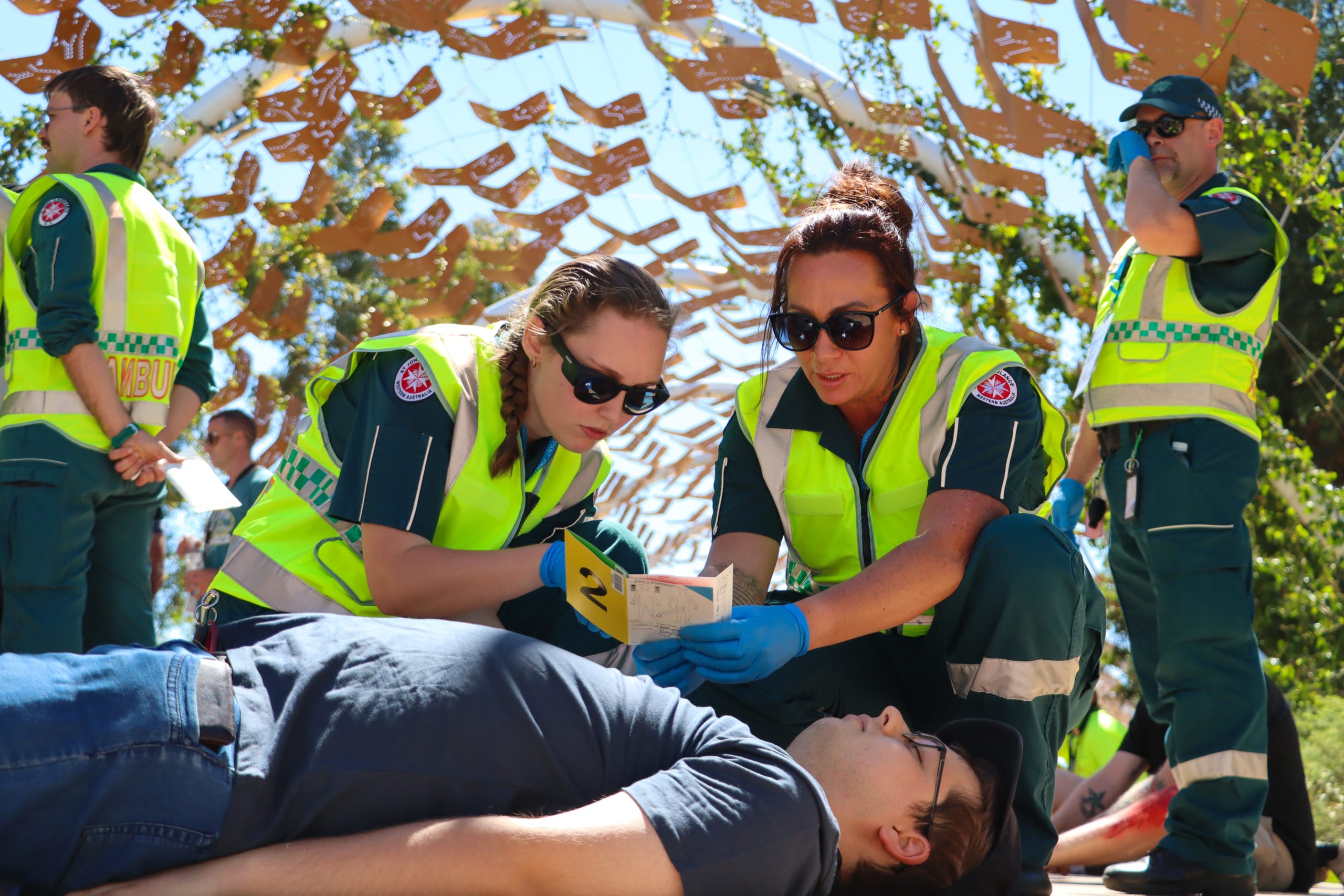Preparation key as first responders put to the test in mock Optus Stadium emergency
First responders were put to the test in an immersive drill at Optus Stadium to practise how they would keep the community safe if a major emergency was to strike during a big event.
St John WA staff and volunteers worked alongside WA Police and Optus Stadium staff to respond to a simulated mass casualty incident inside the stadium on March 18.
Edith Cowan University students helped up the realism, donning fake blood and prosthetic wounds to play injured patients scattered in the stands of the 60,000 seat stadium.

Crews rushed to help each patient, assessing their injuries, and working together to get them safely out of the stadium.
St John WA General Manager for Clinical and Operational Excellence Joe Cuthbertson said the exercise was an opportunity for crews to hone their skills and cooperation.
“It’s a really great opportunity for our people to work alongside other emergency services and police to understand how we respond and care for people,” he said.
“We love sport in our city and our State, and we want to make sure we’re prepared at all times so that if an event has occurred, we know how to switch from caring for the crowd to caring and responding in a dynamic way to a mass trauma event.”
Mr Cuthbertson said the relationship between agencies was critical during large emergencies.
“That’s why we train together, so on the day of the race, we know our people, we know how to work across organisations, and we can provide the best possible coordinated response to care for people,” he said.
“People should have confidence that we’re always training together so that we have a sense of readiness and preparedness for our community.”
More than 70 SJWA staff and volunteers took part in the day, including the Event Health Services team who regularly provide first aid and medical support at the stadium on game days.
Metropolitan ambulance operations, critical care and special operation paramedics, State Operations Centre staff, and emergency management staff also took part.

SJWA Emergency Management Capability Coordinator Nik Stewart said the exercise had been more than six months in the making to ensure it created a realistic scenario for all participants.
“I think everyone went really well,” he said.
“They all worked to the best of their ability with the training that they’ve been provided by the organisation to date.
“It’s extremely important for the organisation, because without exercises like this, we don’t get to learn what we can do better.
“There’s always something you can find that we can do better, whether it’s the training of our people, looking at our operational procedures, or our policies and guidelines.
“Something can always be done better so we can better serve the community.”
